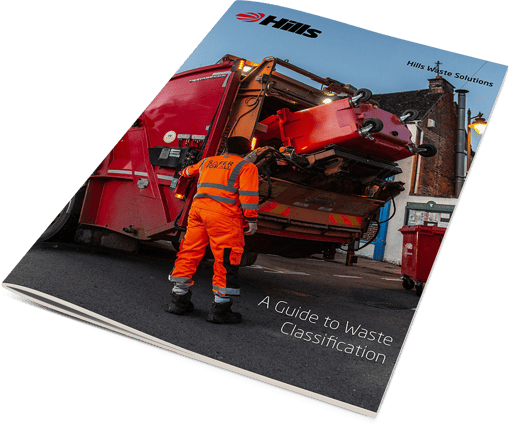
Wood waste recycling
Discover the potential of wood disposal - turning waste wood into valuable, recyclable resources.
CREATE YOUR ONLINE QUOTE NOW
Switch to Hills Waste Solutions in under 10 minutes
- 97% service reliability
- 4,000 businesses in our community
Wood recycling collected from your workplace
Wood is a vital and recyclable natural resource, and that includes wood waste. With approximately 4.5 million tonnes of commercial wood waste generated in the UK each year, responsible wood disposal and recycling are essential for reducing environmental impact and limiting the need for additional tree harvesting.
Our local wood collection service provides convenient commercial wood recycling near you. No need to transport wood waste yourself — all wood we collect is sent for recycling, where it’s converted into products like animal bedding, chipboard, and renewable energy.
Locations served
- Amesbury
- Andover
- Bath
- Bristol
- Cirencester
- Chippenham
- Devizes
- Faringdon
- Frome
- Malmesbury
- Marlborough
- Newbury
- Portishead
- Salisbury
- Shaftesbury
- Swindon
- Trowbridge
- Tidworth
- Warminster
- Weston-Super-Mare
- Yate
What we classify as wood waste
To ensure effective waste management and maximise wood waste recycling, it’s essential to separate materials correctly. What we call wood waste includes packaging wood, MDF, flat-pack furniture, and different grades of wood waste, such as Grade A, B, and C. These materials can all be collected as part of our wood waste disposal services:
- Solid wood and softwood
- Hardwood
- Packaging wood
- Kitchen off-cuts
- Flat-pack furniture
- Medium-density fibreboard (MDF)
- Plywood
- Pallets
- Chipboard
- Domestic furniture
Government policy change
From 1st September 2023, new government regulations on wood waste disposal came into effect. This change means that some wood waste may now be classified as hazardous waste, requiring separation and testing at source by waste providers. The test results must be submitted to Hills Waste Solutions before hazardous waste collection can be arranged.
The following wood waste materials are likely to be affected by the policy update:
- Barge boards, fascia’s and soffits
- External joinery (wooden windows & conservatories)
- External doors
- Roof timbers
- Tiling and cladding battens
- Timber frames/joists
Certain treated wood waste, such as telegraph poles, railway sleepers, and pre-treated timber, is already
classified as hazardous waste and requires specialised disposal.
For expert advice on hazardous wood waste disposal and waste management solutions, contact our
Customer Support Team at 0808 145 4533.
Suitable containers
What happens to your wood waste
Your recycling is sorted
at our materials recycling facility
It can be shredded and sent to a Biomass power station
Or it can be bulked to a re-processor for manufacture of recycled wood products such as chipboard
Frequently asked questions
-
What is wood waste?
Wood waste includes unwanted or discarded wood materials from construction, demolition, wood packaging, and recycling centres. As a highly recyclable resource, wood waste recycling plays a key role in sustainable waste management by reducing landfill waste and promoting reuse.
-
What is not included in wood waste?
Certain wood waste materials are classified as hazardous waste due to chemical treatments and are unsuitable for commercial wood recycling. These include:
• Telegraph poles
• Railway sleepers
• Cooling towers
• Some types of fencingThese items often contain CCA (copper/chrome/arsenic) or creosote, making them hazardous and requiring specialized hazardous waste disposal instead of standard wood waste recycling.
If you are unsure please contact our Customer Support Team at 0808 145 4533 or visit our contact page.
-
How is wood waste handled?
We provide wood waste collection using skips and hook containers, transporting materials to our Lower Compton facility. Upon arrival, wood waste is classified by grade, shredded to meet the required specifications, bulked on-site, and prepared for further processing.
-
What can wood waste be recycled into?
Recycled wood waste can be repurposed into a variety of products, depending on its type and quality. These include:
• Furniture & DIY materials
• Chipboard production
• Landscaping woodchips
• Animal bedding
• Low-carbon fuelBy ensuring proper wood waste disposal and recycling, we help minimise hazardous waste contamination and support a sustainable waste management system.
Download our Waste Classification Guide
We’re here to make your life easy, so why not download our full Waste Classification Guide including detailed lists of what can and can’t be accepted for all our waste services.

.png)
.png)
